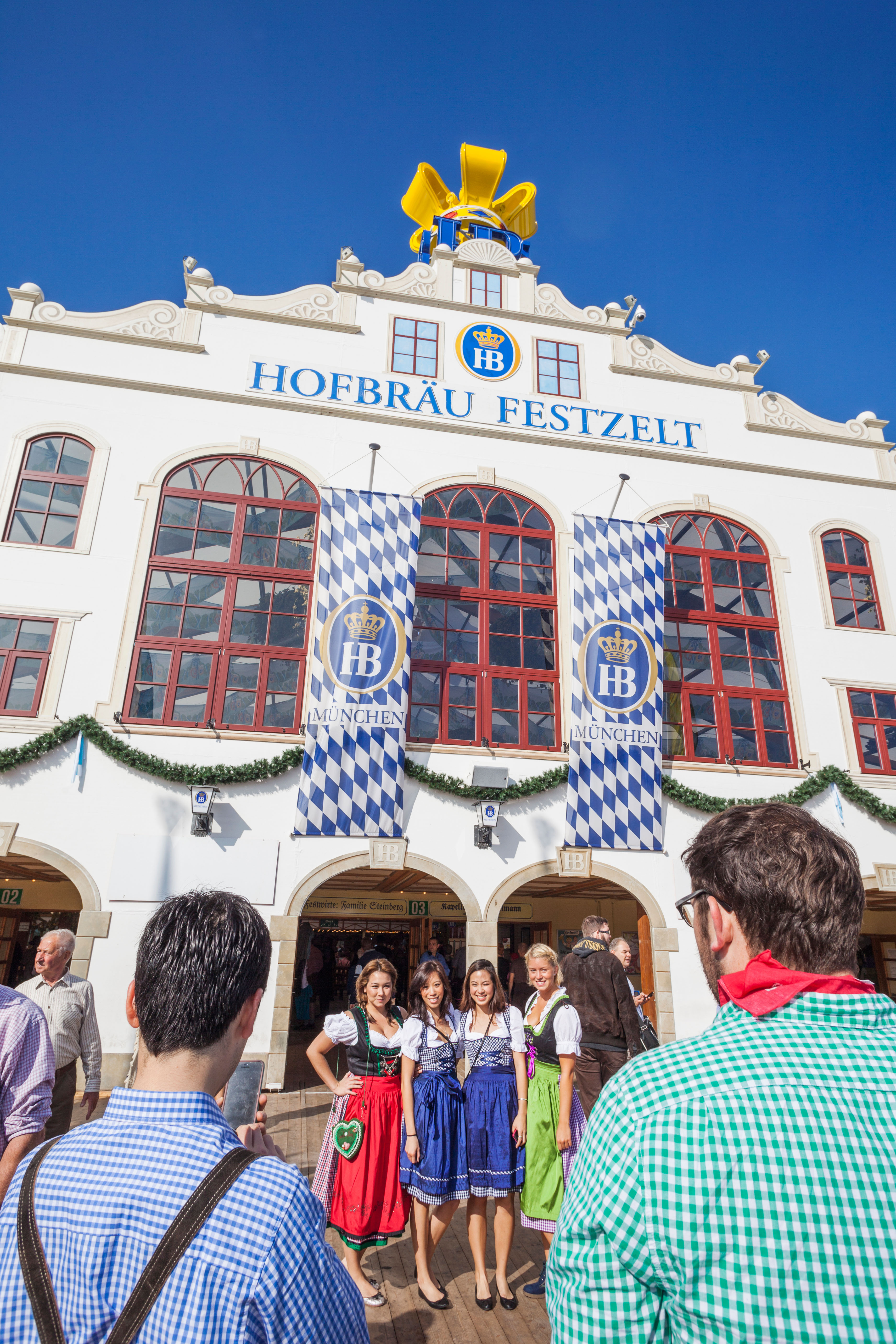Oktoberfest is a lively annual beer festival held in Munich, Germany. It usually lasts 16 days, starting on a Saturday in the second half of September and normally ending on the first Sunday in October. However, it extends to October 3rd when necessary, to celebrate the anniversary of Germany’s unification. Since its beginning in 1810, Oktoberfest has become one of the largest festivals in the world. Each year, millions of people fill huge tents to enjoy food, beer, and music. At the opening ceremony, the mayor of Munich has the honor of tapping the first barrel of Oktoberfest beer and calling out O’zapft is! (It is tapped!).

Oktoberfest activities include parades, music, singing, dancing, carnival games, and contests. Popular foods include grilled fish, potato salad, pretzels, roasted chicken, braised or stewed oxtail, sauerkraut, and sausage. Men often wear traditional lederhosen (short pants made of leather with decorated suspenders), rustic shoes, and wool socks. Women may wear a dirndl, a colorful cotton dress with an apron. Much of the celebration takes place in enormous tents where beer and food are served. By law, only beers from the six officially recognized Munich breweries can be served at Oktoberfest.
Oktoberfest commemorates the marriage of Crown Prince Ludwig of Bavaria to Princess Therese of Saxony-Hildburghausen on Oct. 12, 1810. Prince Ludwig, who later became King Ludwig I, invited the people of Munich to celebrate the marriage with a great festival on the fields near the city gates. Oktoberfest continues to be held at the same location, now called Theresienwiese (Therese’s Meadow) in honor of the Princess. The original festival lasted five days and concluded with a horse race. Beer stands, agricultural shows, a costume parade of people wearing traditional Bavarian attire, and other activities were added as the celebration became an annual event. In the late 1800’s, the start of the festival was moved to September, when Munich’s weather is milder.
Settlers from Germany have carried the Oktoberfest tradition with them as they moved to other places. Today, many communities around the world hold their own local Oktoberfest celebrations.
